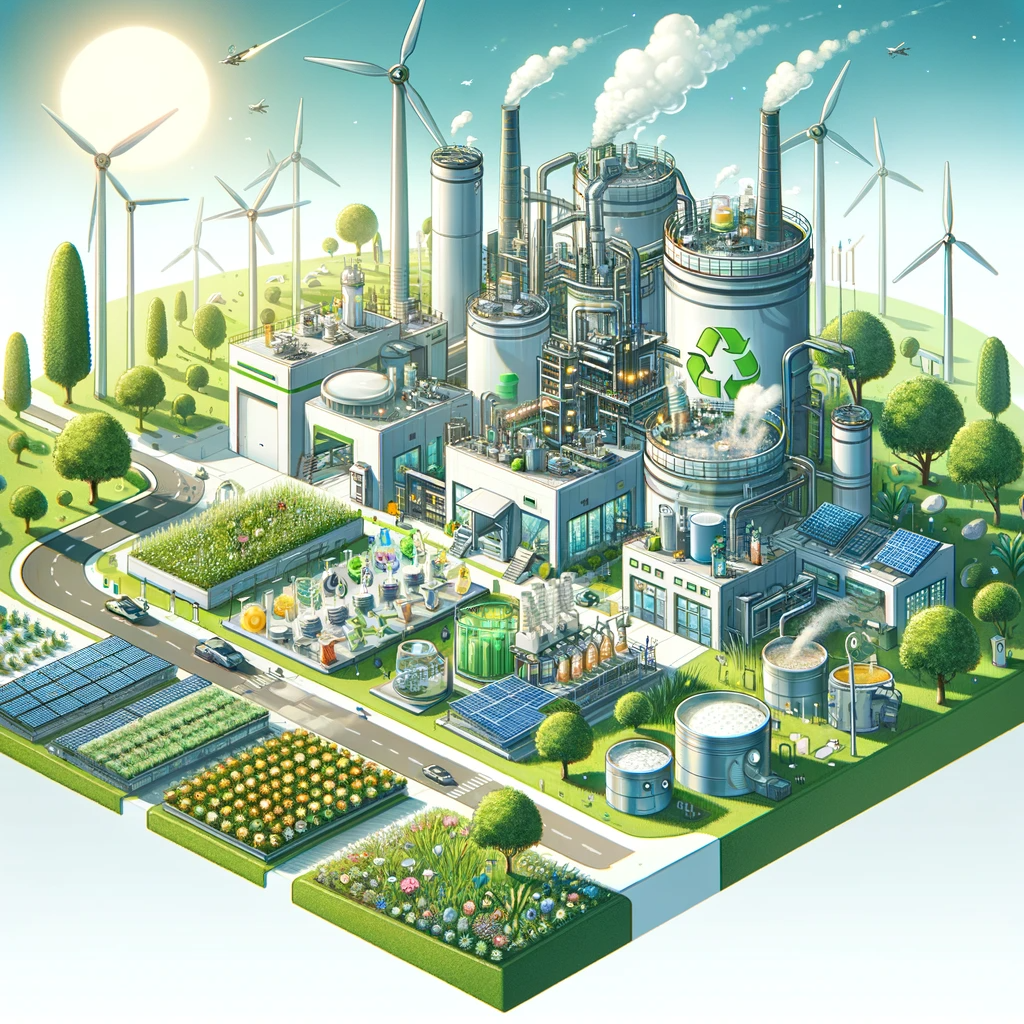Introduction
In a world where environmental concerns are at an all-time high, industries are facing increasing pressure to adopt sustainable practices. The manufacturing sector, in particular, has been under scrutiny for its significant contribution to pollution and resource depletion. However, a revolution is underway, one that emphasizes the use of eco-friendly ingredients in manufacturing processes to reduce the environmental impact. In this article, we will explore this groundbreaking shift towards sustainability and how it is shaping the future of manufacturing.
1. The Urgent Need for Sustainability
As our planet grapples with the consequences of climate change and environmental degradation, the need for sustainable manufacturing has never been more urgent. Traditional manufacturing processes often rely on non-renewable resources, generate harmful emissions, and produce vast amounts of waste. The adoption of eco-friendly ingredients is a vital step towards mitigating these issues.
2. Eco-friendly Ingredients Defined
Eco-friendly ingredients, also known as green or sustainable ingredients, are materials sourced and processed in ways that have minimal environmental impact. These ingredients are renewable, biodegradable, non-toxic, and often produced through eco-conscious methods. They are a game-changer in manufacturing, offering a cleaner and greener alternative to conventional materials.
3. A Wide Range of Applications
Eco-friendly ingredients are versatile and can be used across various industries. From cosmetics and personal care products to construction and packaging, their applications are virtually limitless. Businesses are recognizing that sustainable choices can lead to cost savings, improved brand reputation, and consumer loyalty.
4. Bioplastics: The Future of Packaging
One of the most exciting developments in sustainable manufacturing is the use of bioplastics. Derived from renewable sources like cornstarch, sugarcane, and potato starch, bioplastics are an eco-friendly alternative to traditional petroleum-based plastics. They are biodegradable, and compostable, and reduce the burden of plastic waste in our environment.
5. Natural Ingredients in Cosmetics
The beauty and personal care industry has embraced eco-friendly ingredients with open arms. Natural oils, plant extracts, and biodegradable exfoliants are replacing synthetic chemicals and microplastics. These ingredients not only enhance product efficacy but also appeal to consumers seeking safer and more environmentally responsible options.
6. Sustainable Textiles
In the fashion and textile industry, sustainable fabrics are gaining traction. Materials like organic cotton, hemp, and bamboo are not only biodegradable but also require fewer pesticides and water in their production. Sustainable fashion is becoming a consumer-driven trend, encouraging manufacturers to rethink their materials.
7. Renewable Energy Sources
Manufacturing plants are increasingly transitioning to renewable energy sources such as solar and wind power. By harnessing the energy from these eco-friendly sources, manufacturers reduce their carbon footprint and decrease reliance on fossil fuels.
8. The Role of Certification and Standards
To ensure the authenticity of eco-friendly ingredients and products, various certification bodies and standards have emerged. Certifications like Fair Trade, USDA Organic, and Cradle to Cradle provide consumers with assurance that the manufacturing process is genuinely sustainable.
9. Consumer Demand for Sustainability
As consumers become more environmentally conscious, they are demanding eco-friendly products. Manufacturers are responding by incorporating eco-friendly ingredients into their offerings to meet this growing demand. Brands that prioritize sustainability are poised to thrive in a market driven by conscious consumer choices.
10. The Path Forward
The adoption of eco-friendly ingredients in manufacturing represents a significant step towards a more sustainable future. It’s not just a trend; it’s a necessity. Businesses that embrace these changes will not only contribute to a healthier planet but also reap the benefits of increased market share and customer loyalty. The eco-friendly ingredients revolution is here, and it’s reshaping the manufacturing industry for the better.
In conclusion, the shift towards using eco-friendly ingredients in manufacturing is a promising development in the ongoing battle against climate change and environmental degradation. As we continue to explore and adopt sustainable choices, we pave the way for a brighter and more sustainable future for generations to come. The eco-friendly ingredients revolution is an opportunity we cannot afford to miss.
